The best countries to travel to in Southeast Asia
From Indonesia to Malaysia, the must-visit destinations on this corner of the continent
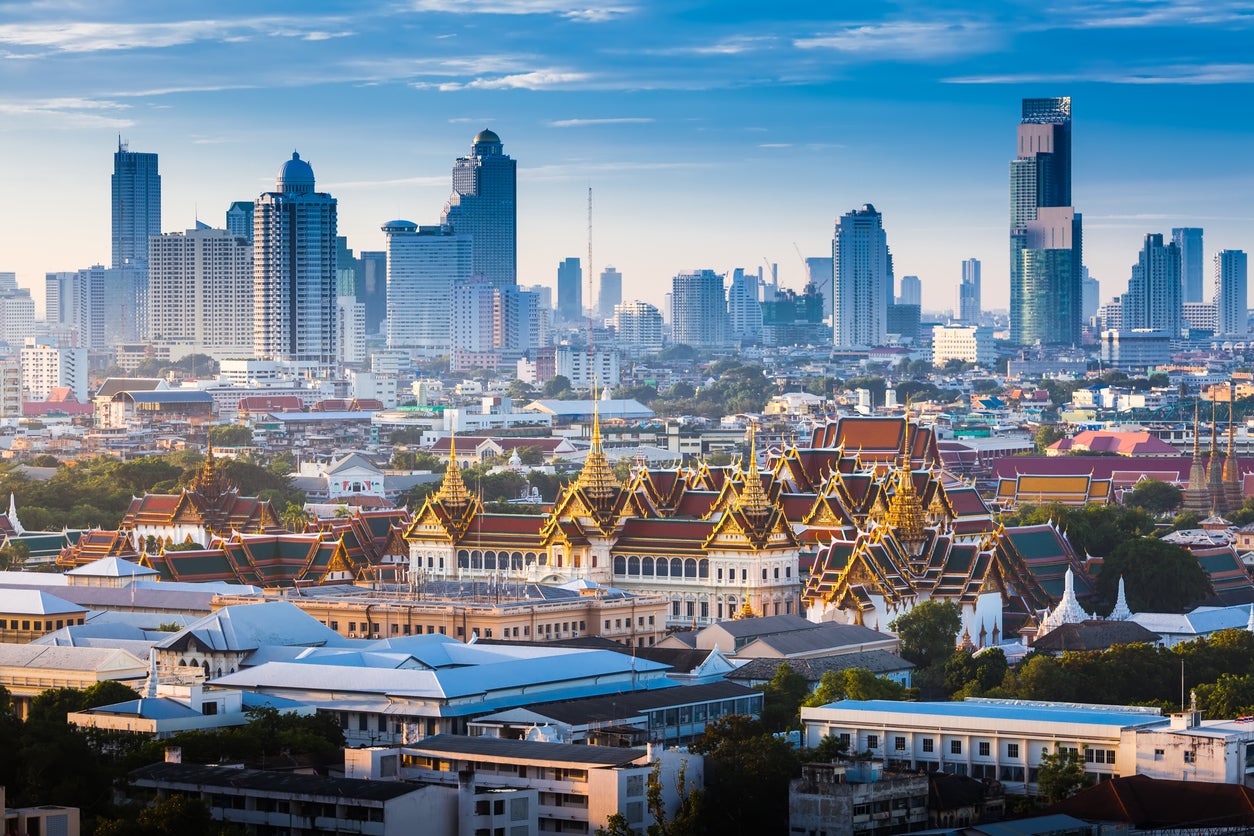
Southeast Asia is a blend of fascinating traditions and cultures, with some of the most incredible temples, palaces and natural sites on the planet.
This region is home to famed attractions, from Angkor Wat to Ha Long Bay, as well as a selection of sprawling cities – including Bangkok, Kuala Lumpur and Singapore – and miles of pristine coastlines around Indonesia and the Philippines.
And though places such as Bangkok and Singapore have seen high numbers of British tourists for decades, other destinations are starting to attract more people, from lesser-known Laos to the neighbouring backpacker favourite of Cambodia.
Whether you’re looking to throw yourself into exploring a city or hop around a handful of serene tropical islands, your options are pentiful in this corner of the world.
Below are Independent Travel’s picks for the region’s best countries to visit on holiday; read on to start planning your next long-haul getaway.
Thailand
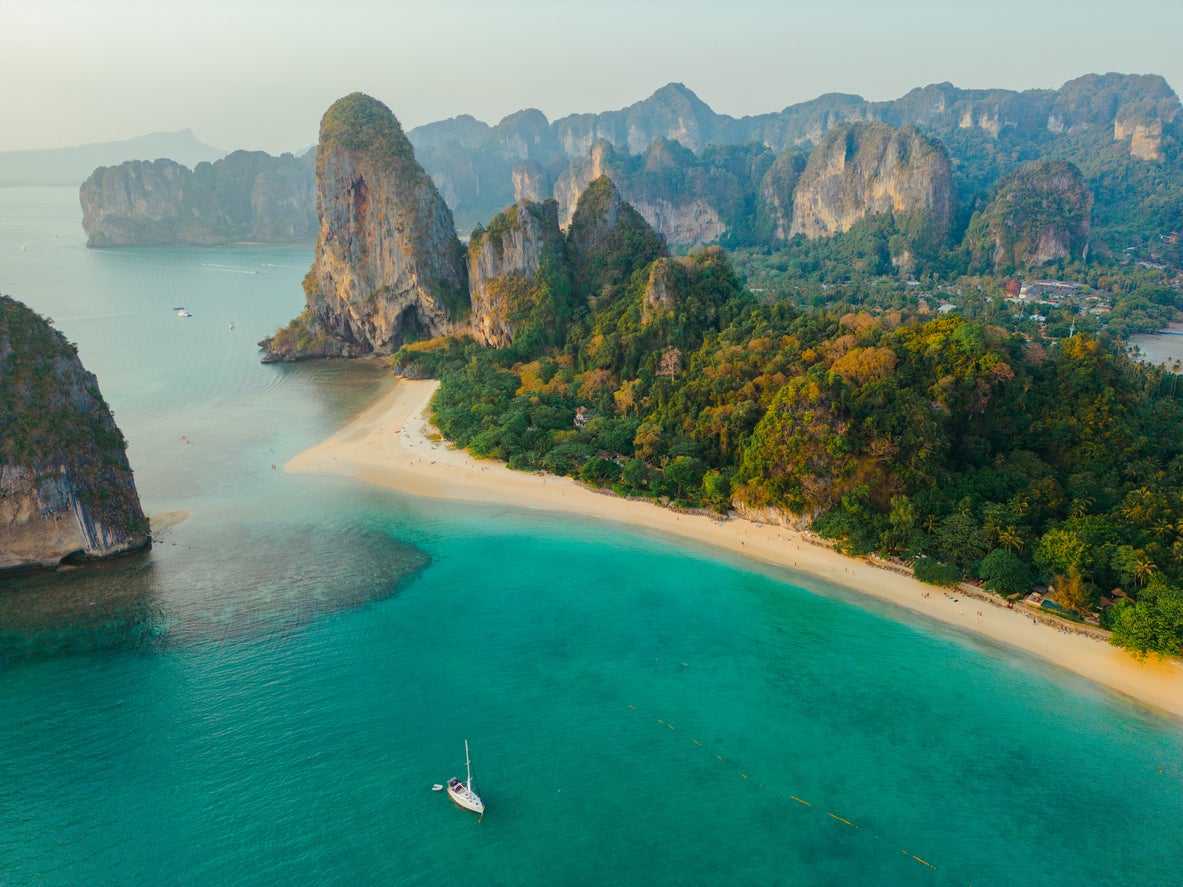
Thailand has long been a tourist favourite for Brits, whether for travelling youngsters or business people. Its capital, Bangkok (known locally as Krung Thep) was the most visited city in the world for several years in a row before Covid and is just a short journey away from the ancient city of Ayutthaya.
With dozens of famous white-sand beaches around the country (such as Railay and Ko Phi Phi), as well as several areas of natural beauty (one of the most unique being Khao Sok National Park) and dozens of temples and palaces, Thailand offers anyone visiting the country a diverse mix of sightseeing, city experiences and relaxation – not to mention the nation’s delicious cuisine.
Best time to visit Thailand
With a rainy season falling between July and October, the best time to visit is between November and April, when temperatures are higher (with average highs in the early 30s). May is usually a quieter time to visit, but the sunshine may be interrupted by short rain periods.
Vietnam
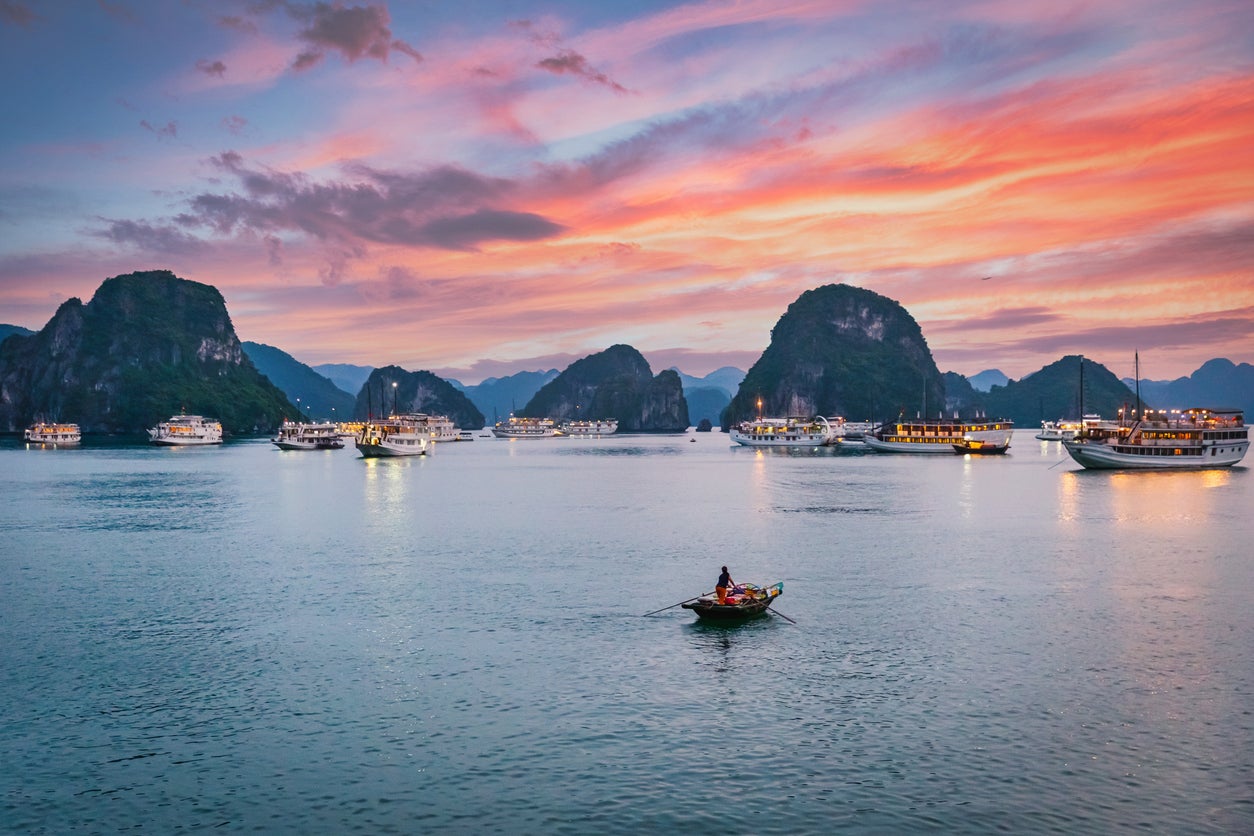
Vietnam’s various areas of natural beauty are among the most notable in the region. Ha Long Bay is the country’s most famous natural area, while the beaches of Phu Quoc and the Cham Islands offer equal beauty in different settings. Other natural attractions include the caves of Phong Nha and Hang Son Doong, the Marble Mountains and the sand dunes at Mui Ne.
As for cities, Ho Chi Minh City, Hanoi and Da Nang are the best destinations for those who want to experience Vietnamese ‘hustle and bustle’ (Da Nang also has beach areas), while Hoi An is sometimes referred to as the ‘Venice of Vietnam’ due to its canals and the well-preserved Ancient Town comprised of wooden Chinese shophouses and French colonial buildings.
Best time to visit Vietnam
April and September fall just before and after the high season in Vietnam and also offer less humidity and lower temperatures than at the peak of summer. With weather that can vary quite drastically across the country in different months, these should give the best weather across the board too.
Read more on Asia travel:
Singapore
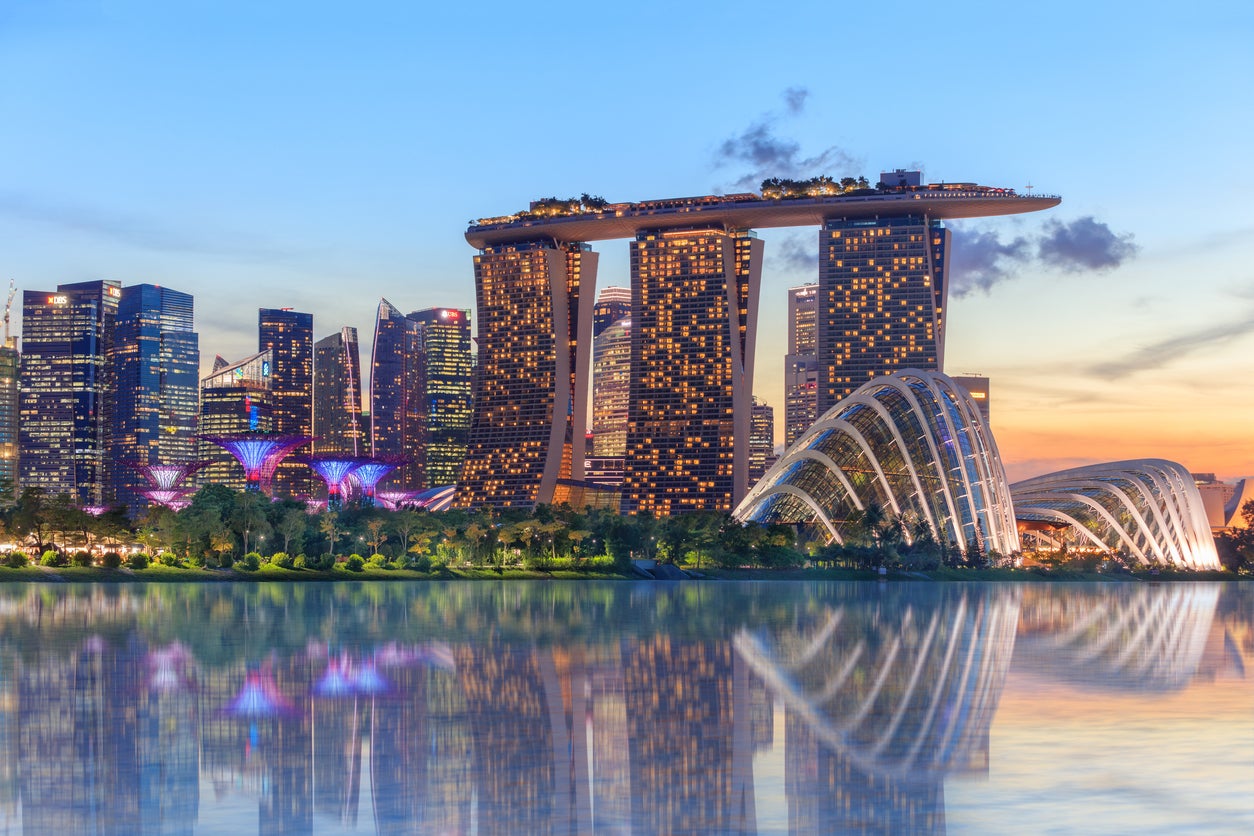
Singapore is a popular destination for British expats, with an estimated 50,000 living there. It’s a country that is almost unlike any other; its urban planning strategy has created a metropolis and enabled almost six million people to live in an area roughly half the size of London.
Despite its diminutive size, the country offers numerous attractions, from its Botanic Gardens (a Unesco world heritage site) and historical and art museums to the Gardens by the Bay, a nature park spanning 101 hectares, and a Universal Studios theme park. It also hosts a Formula 1 race, which takes place in September on the Marina Bay Street Circuit.
Best time to visit Singapore
Singapore has significant rainfall all year, although the country’s dry season falls between February and April, when humidity levels are also at their lowest. Specifically, February and September offer the lowest rainfall and humidity, with average highs of around 31C. September also falls in low season.
Indonesia
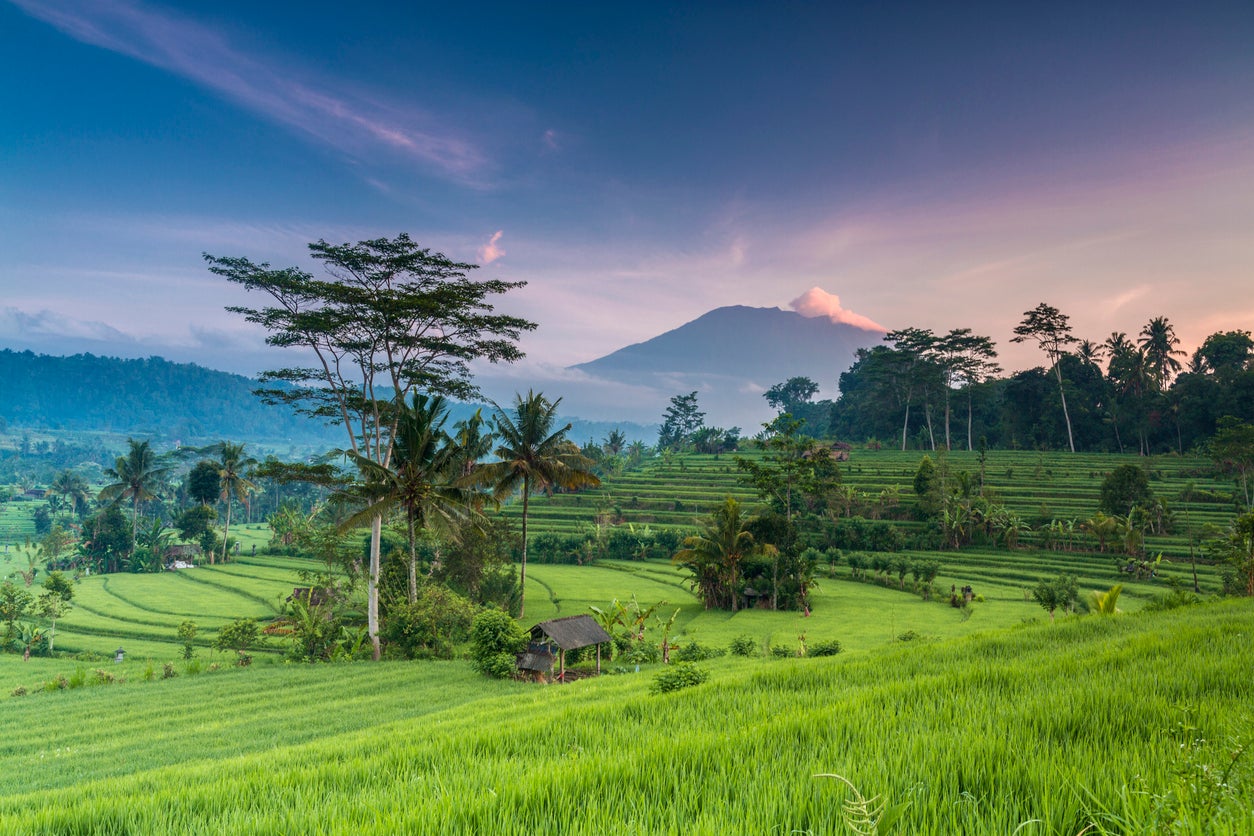
By far the largest country in Southeast Asia, Indonesia lies at the southern end of the region and consists of roughly 17,500 islands, including Sumatra and Bali. With so many islands, it’s no surprise that the archipelago contains some of the region’s most attractive areas. Bali in particular is a tourism hotspot, while many of the islands offer tropical rainforests, rugged terrain and even volcanoes (the country sits within the Pacific Ring of Fire and is prone to both eruptions and earthquakes).
Jakarta is the capital and largest city in the country and is located – along with the popular tourist town of Yogyakarta– on the island of Java. Idyllic locations include Lombok and the Raja Ampat islands; Bromo Tengger Semeru and Komodo National Parks offer unreal nature and wildlife-spotting opportunities.
Best time to visit Indonesia
The dry season usually runs from April to October, which is also when the country welcomes the most tourists. If you want to avoid crowds, May and June offer average highs of roughly 31C and over eight hours of sunshine per day.
Malaysia
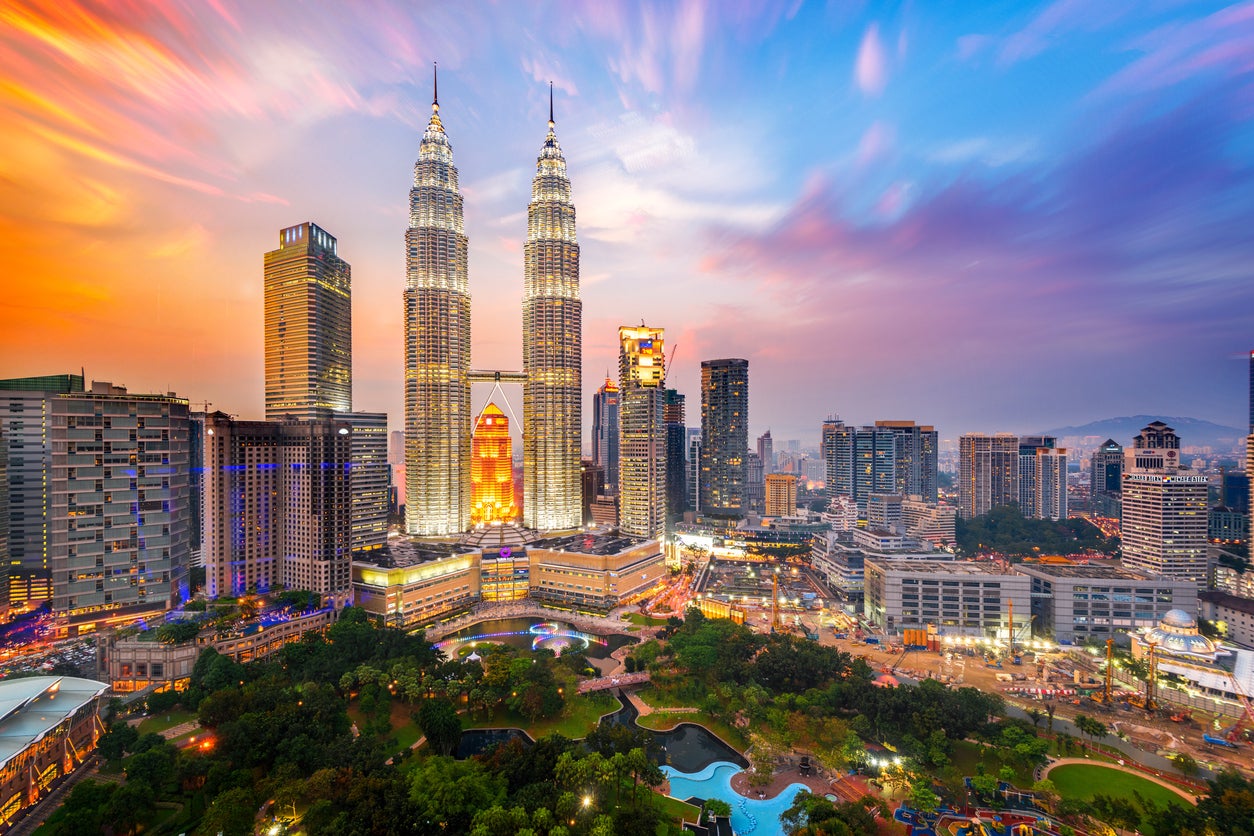
Malaysia’s culture is an eclectic mix of European, Chinese, Indian and Malay influences, while the country itself is famous for its rainforest, beaches and the capital city of Kuala Lumpur, with the iconic Petronas Twin Towers being one of the country’s most iconic symbols.
Away from the capital, many tourists decide to visit the Malaysian part of Borneo – in the north of the island – where rainforest treks, wildlife viewing and relaxing on the beach are all possible. The Perhentian Islands and Sipadan are two other popular destinations, while nature-lovers flock to the Batu Caves, Mount Kinabalu and the Cameron Highlands.
Best time to visit Malaysia
You can expect fewer crowds from March to June; these months have average temperatures of around 28C, while June is the driest month of the year (though bear in mind you can still expect showers every month).
Philippines
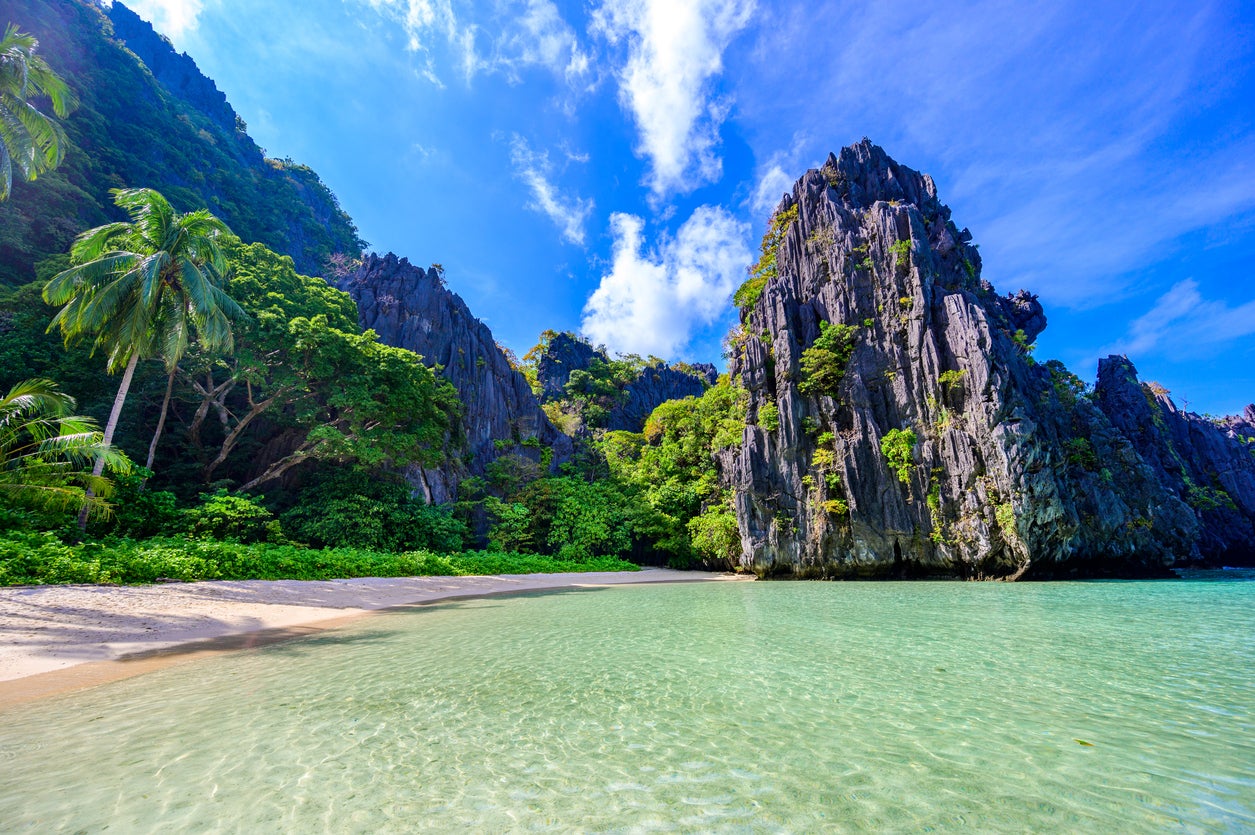
Another archipelago, the Philippines consists of more than 7,000 islands. Under Spanish rule for over 300 years, it is one of the only predominantly Roman Catholic countries in the whole continent and has been widely influenced by Western culture and traditions. For those keen to see its cities, Manila is the capital while Quezon is the largest.
Tropical white-sand beaches are plentiful on the nation’s thousands of isles, while the volcanoes of Mayon and Tail offer dramatic scenery overlooking the water. Other sites include Sigma Lagoon, Pagsanjan Falls and the Batad rice terraces.
Best time to visit the Philippines
The Philippines dry season falls right in the middle of the low season for tourism. The driest months are between January and March, where there is little rainfall and humidity falls to much more tolerable levels. Expect temperatures of up to 24C – and lows of 15C – every day.
Cambodia
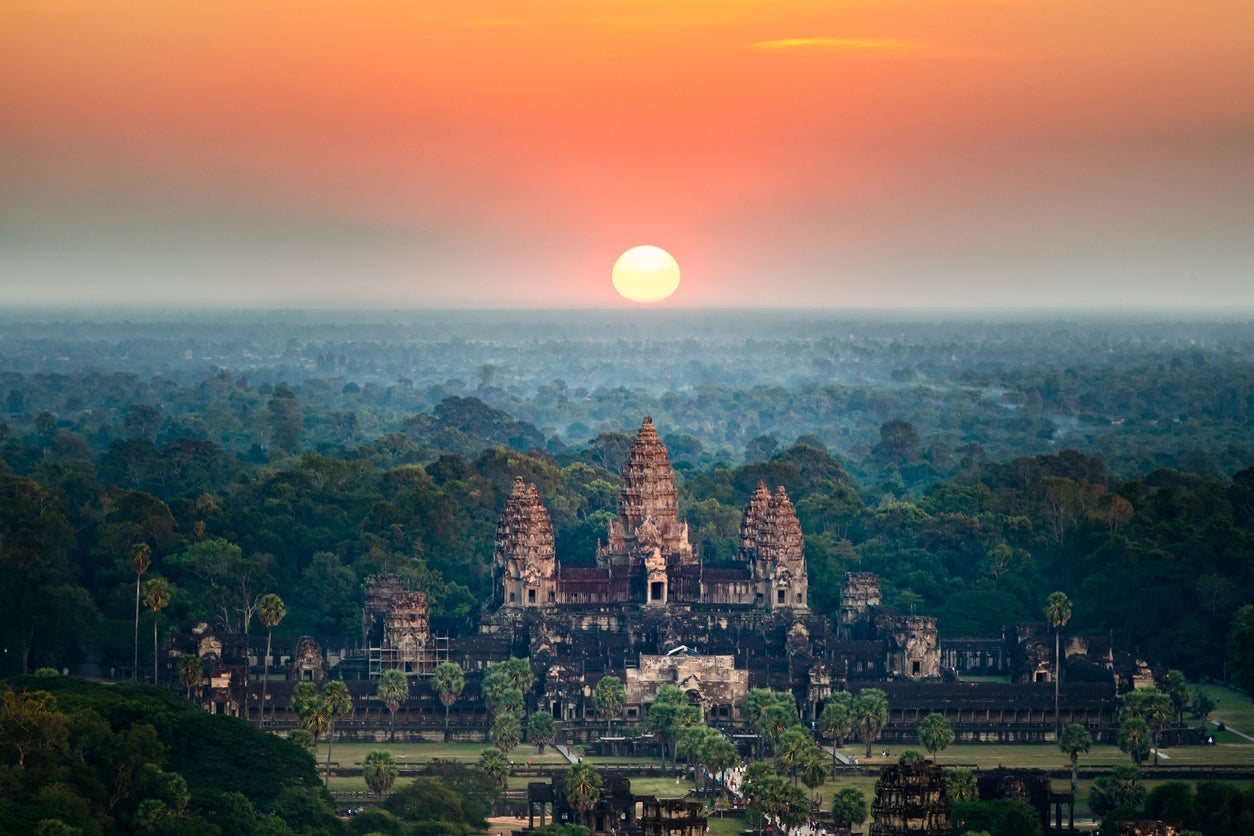
Cambodia welcomes visitors eager to learn about its complicated history and experience its mix of Asian and French culture. A largely rural country, only three of its cities are home to over 100,000 people despite the country’s 16 million-strong population. Phnom Penh is the capital and largest city, while Siem Reap is another metropolitan centre that also acts as the gate to Angkor Wat, an ancient temple which today is the largest religious structure in the world.
The country’s islands, such as Koh Rong and Koh Rong Samloem, contain pristine white beaches, sandy coves and coral reefs, and are popular spots for partying too. The Cardamom mountain range stretches over 4.4 million hectares of rainforest through the Southeast and into eastern Thailand, and is home to a vast range of wildlife, including sun bears, elephants and Siamese crocodiles. Tonle Sap lake is the largest in Southeast Asia, with its waters and floodplain home to over three million people and hundreds of different animal species.
Best time to visit Cambodia
Temperatures are at their lowest in the dry season between November and February, but you’ll still see average highs of 30C.
Laos
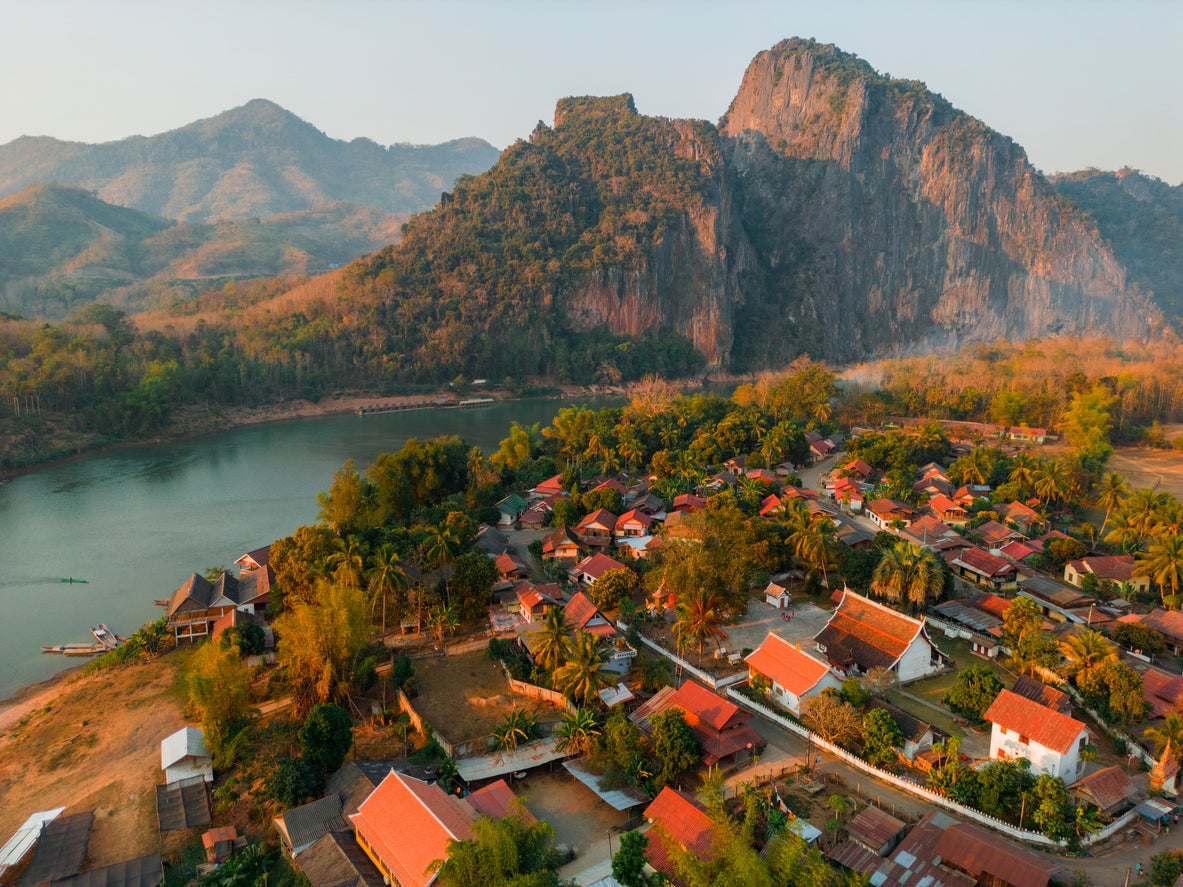
Laos is one of the continent’s smaller countries, and its shared borders – with Vietnam to the east, Thailand to the west and Cambodia to the south – give you an indication of the geography that you’ll find here. Whether you want to go through dense jungle on a cruise along the winding Mekong River, trek through the jagged karst around Vang Vieng or simply relax in the laid-back capital of Vientiane, there’s something to appeal.
Laos’ most important landmark is the Pha That Luang, a golden Buddhist stupa in Vientiane, while the capital’s other highlights include temples like Wat Si Saket and the old quarter. If you have time, visit the peaceful Song River and the town of Vang Vieng, before exploring the Unesco city of Luang Prabang and surrounding nature, including waterfalls, plunge pools and the banks of the Mekong.
Best time to visit Laos
The weather is Laos is best between October and April, when conditions are dry and not too warm. For river cruises, November through to January is best for high water levels, while August is both the wettest and most humid month.
Join our commenting forum
Join thought-provoking conversations, follow other Independent readers and see their replies
Comments
Bookmark popover
Removed from bookmarks